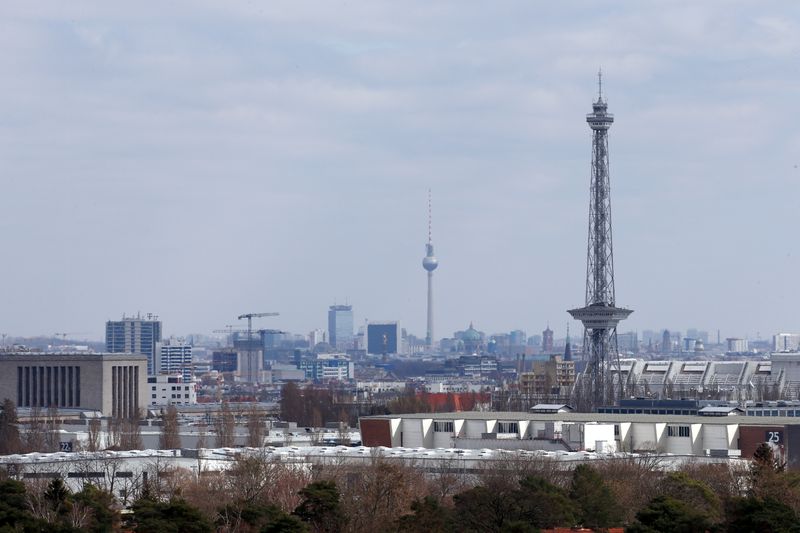BERLIN (Reuters) -Corporate insolvencies in Germany fell by 21.8% on the year in February, the Federal Statistics Office said on Tuesday, continuing a downtrend since the introduction of a waiver at the start of the pandemic.
Germany let firms that were struggling with the crisis delay filing for bankruptcy from March last year - though critics said the policy would only end up propping up "zombie companies" with no viable future.
Insolvencies duly fell, hitting their lowest level since 1999 last year. But since October, Berlin has phased out the scheme. This year only firms awaiting state aid provided since November were exempt from filing - until this month.
The Statistics Office said the February figures meant "that the economic problems of many businesses due to the coronavirus crisis were not yet reflected by an increase in reported business insolvencies."
Tuesday's data release also showed a let-up in insolvencies making their way through the legal system in Europe's largest economy after a sharp increase in recent months.
The number of new insolvency proceedings, which give an indication of the future path of actual insolvencies, fell 17% in April from the prior month, provisional data showed. That followed a 37% increase in March.

The European Union's top economic watchdog said last month EU governments must step in to avert a wave of insolvencies by healthy companies that are struggling due to the pandemic.
But local critics who say the fall in insolvencies over the past year is proof in itself the state has done more than enough and that excessive support risks impeding what economic liberals hail as "creative destruction", the term popularised in the 1940s by Austrian economist Joseph Schumpeter to describe unviable firms folding to make way for more dynamic newcomers.